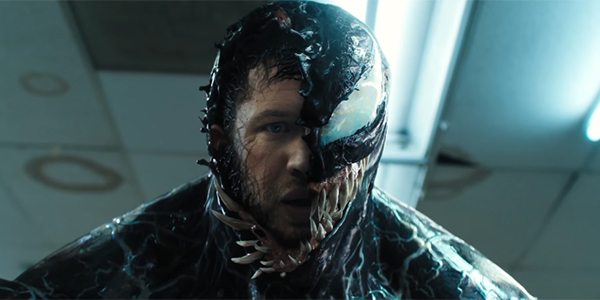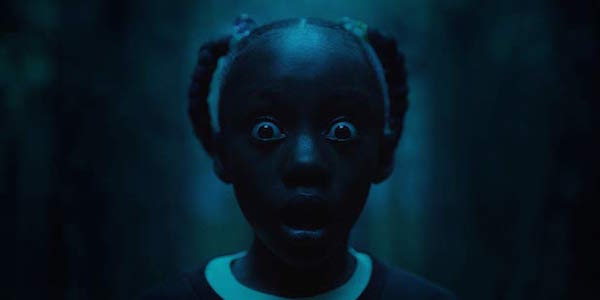WATCH BOX OFFICE MOVIES FOR FREE
What Venom's Success Really Means For Sony's Spider-Verse

Warning: The following contains SPOILERS for Venom!
A few short years ago, Sony basically rented out Spider-Man after the franchise-killing The Amazing Spider-Man 2. This year, with Spidey off fighting aliens in the MCU, Sony decided it was going to try its hand again at universe-building, only this time it would be with Spider-Man antagonist Venom. Before Venom's release, there was a lot of suspicion that the anti-hero film would be a dud, and that it would mark Sony's ambitious hopes for a shared cinematic Spider-Verse as dead on arrival.
Obviously those fears did not bear out. Venom has been a smash hit for Sony, enjoying a worldwide box office of over $822 million and counting, which vaults the symbiote over other more established and recognizable superheroes like Wonder Woman and the Justice League. Venom has also pushed Sony past box office milestones and helped the studio ink a multi-picture deal with IMAX.
Venom delivered without the web-slinger and its success seems to paint a rosy picture for the future of Sony's Spider-Verse, setting up future spinoffs of Spider-Man characters for box office riches. However, what Venom's success really means is that Venom has a bright future; it doesn't mean that Sony's Spider-Verse at large is primed for prosperity.
This notion might seem antithetical. After all, if Venom is the start of the Spider-Verse, and Venom is a success, doesn't that mean that the Spider-Verse is likely to be? And sure, Venom's performance is certainly the best possible outcome for Sony, as a flop likely would have killed the Spider-Verse in its infancy. Yet, while Venom got this shared cinematic universe started off on the right foot, box office-wise at least, it does not guarantee anything about the non-Venom films in the works.
The reason, for the most part, comes down to character. To kick off its shared cinematic universe, Sony picked Venom: a very popular Spider-Man villain that had already been depicted in live action. Venom is extremely recognizable with a cool look and he has great awareness among even those only tangentially attuned to the world of comic book characters.
Now consider the other names reportedly tapped for their own spinoff films in Sony's Spider-Verse after Venom: Black Cat, Silver Sable, Morbius, Nightwatch, Silk, and Kraven the Hunter. Of those I would guess that Black Cat or maybe Morbius has the greatest name value, but to say that they are a step down from Venom is an understatement.
Iron Man was a B-list character before his 2008 Marvel Studios film, but he was still followed by characters of similar popularity and name value with Thor and Captain America. Venom may be an A-list Spidey villain, but characters like Nightwatch and Silk do not enjoy the same cachet as the Green Goblin or Doctor Octopus.
This is in no way an indictment of Sony's choices; it's awesome that some lesser-known characters will get some cinematic shine while more still will be battling Spider-Man on the MCU side of things. Yet the relative obscurity of the characters coming to Sony's Spider-Verse makes the universe as a whole very much a question mark.
To Venom's credit, it didn't commit that increasingly common sin of doing too much universe-building for future films and not enough storytelling in its own movie. Venom simply used its end-credits scene to tease a sequel that will see Woody Harrelson's Carnage enter the fray. But by not teasing something like Morbius, it puts more of an onus on that film to sell itself, with a character that the wider public probably hasn't heard of.
In many ways it all comes back to the big question we had before Venom was released: "Can he work without Spider-Man?" The reviews for the film seem to indicate that no, he cannot. But reviews aren't the sole arbiter -- or even the primary one -- of success. And the worldwide audience has spoken, and in an indiscernible Tom Hardy accent, said 'We don't need no stinking Spider-Man!'
Nevertheless, what's true for Venom may not be true for the rest of the Spider-Verse. Just because Venom doesn't need Spider-Man doesn't mean the other characters don't. Peter Parker is the glue that holds these characters together on the page and we don't yet know how well they will all work in his absence. (Supposedly Spider-Man will be in the Kraven the Hunter movie, but that film is still in the early stages, so everything is TBD.)
Sure, like Venom, these spinoff characters have had their own solo comics, but that's in a world where they were first introduced opposite the web-slinger. My guess is that the less prominent the character, the more keenly Spidey's absence will be felt. And without Spider-Man to sell these spinoffs to general audiences, the rest of the Spider-Verse has its work cut out for it.
Despite all these reservations, Sony's Spider-Verse is in a much better position than it was prior to Venom's release, when reports of all the spinoffs seemed like a studio counting its eggs before they hatched. Now Sony has two 2020 dates marked for Spider-Man spinoffs, presumably Morbius and Venom 2.
The latter is the real product of Venom's success. Venom 2 will build off the first film's resonance with audiences and likely be a huge hit at the box office, especially internationally. But two Venom films or five that all crack $800 million do not a successful shared cinematic universe make. If only Iron Man movies were hits, it would be a series, not a cinematic universe; a team effort is required.
Still, Venom 2 and Morbius can begin to lay greater groundwork for this shared cinematic universe, using Venom as the anchor to build upon. There are other things working in the Spider-Verse's favor too, like the fact that Sony is clearly going for talent. Landing Oscar winner Jared Leto for the role of Dr. Michael Morbius certainly shouldn't hurt that film's chances and Morbius can be pitched as something of a horror/vampire movie as well as a comic book movie.
Minus its poor critical reception, Venom put Sony in just about the best position possible for its Spider-Verse to succeed. Hopefully Venom's performance will embolden Sony to make interesting creative choices with the rest of this universe, upping the quality and giving us something different than the MCU and DCEU. But it is important to distinguish what Venom's success does and doesn't mean, and while the future is promising for the symbiote, the fortunes of Sony's Spider-Verse at large remain unknown.
There are no Sony Spider-Verse (SSV?) movies next year but you won't be wanting for comic book properties as 2019 is chock full of them. Check out all of next year's biggest movies in our 2019 Release Schedule.

However, what Venom's success really means is that Venom has a bright future; it doesn't mean that Sony's Spider-Verse at large is primed for prosperity. This notion might seem antithetical. After all, if Venom is the start of the Spider-Verse, and Venom is a success, doesn't that mean that the Spider-Verse is likely to be?
Venom is a Success - A Spider-Man Free Spider-Verse May Not Be

However, what Venom's success really means is that Venom has a bright future; it doesn't mean that Sony's Spider-Verse at large is primed for prosperity. This notion might seem antithetical. After all, if Venom is the start of the Spider-Verse, and Venom is a success, doesn't that mean that the Spider-Verse is likely to be?
What Venom's Success Really Means For Sony's Spider-Verse

Afterwards, Sony will ultimately decide what to do, but given that Holland will still be pretty popular critically and within the GA, I think the smart move would be to rearrange another deal with Marvel Studios, or for once resell every Spider-verse characters to MS. It really depends on the success of their upcoming movies.
Venom's Success May Close The Door On Spider-Man Rights Ever

It's funny that you think Sony would ever give the rights back in any scenario other than Disney buying Sony. They're about to make Into the Spider-verse and it's a really good movie. They just came out with one of the greatest PS4 games of the year with Spider-man. They're making bank. They will never give Spider-man back.
What Are Venom's Powers? The Marvel Antihero Has Some

However, what Venom's success really means is that Venom has a bright future; it doesn't mean that Sony's Spider-Verse at large is primed for prosperity. This notion might seem antithetical.
What Venom's Success Really Means For Sony's Spider-Verse

What Venom's Success Really Means For Sony's Spider-Verse

Venom officially hit theaters on Oct. 5, and it finally answers MCU fans' questions about what exactly Sony's "Spiderverse" may look like. While Sony may not actually be able to use Marvel's

The unexpected success of "Venom" -- it's grossed over $500 million worldwide -- might mean that more "Spider-Man" movies are going to stay at Sony, instead of Marvel.
What Venom Tells Us About the Future of Sony's Spider-Verse

That being said it was a success and a big one at that. Sony is certainly heartened by this as they are moving forward with their Spider-Man free universe. Next up is the Jared Leto led Morbius: The Living Vampire which is where issues I believe start to arrive.
'Venom's Success Might Be a Headache for Marvel | Moviefone

None of that is to say Sony's Spider-Verse can't work; the early financial success of Venom makes a sequel a certainty, and the continued development of a Morbius film likely. But any success that cinematic universe may find won't stem from Venom.
Venom's Success Means Marvel Probably Won't Get Spider-Man

Venom's Success Means Marvel Probably Won't Get Spider-Man Back Venom's box office success lessens the possibility that Sony will return the rights to Spider-Man and related characters to Marvel.
[Other] Why Venom's Success Does NOT Mean Spider-Man Is

0 comments:
Posting Komentar